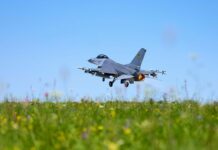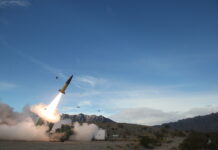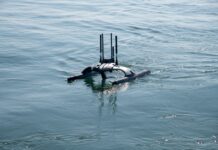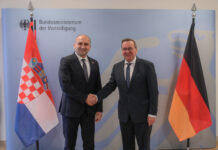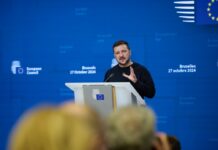The latest NATO Military Committee in Chiefs of Defence Session, which took place at NATO Headquarters in Brussels from 17 to 18 January 2024, saw the alliance girding itself to be stronger than ever amid challenges to the rules-based international order on multiple fronts.
In opening the session, the NATO Military Committee chair, Dutch Admiral Rob Bauer, stated, “The tectonic plates of power are shifting, and as a result we face the most dangerous world in decades. In this new era of collective defence we must defend not only the physical safety of our one billion people and 31 (soon to be 32) nations; we are defending freedom and democracy.”
The two-day meeting saw the inaugural NATO-Ukraine Council in Chiefs of Defence format, in which the Ukrainian Military Representative to NATO, Major General Serhii Salkutsan, briefed the NATO Chiefs of Defence on behalf of Ukrainian Chief of Defence General Zaluzhnyi.
Speaking on 18 January 2024 on the conclusion of the two-day meeting, Adm Rob Bauer said of Ukraine, “Our assessment is: there is intense fighting going on. And while Russia’s most recent attacks are devastating, they are not militarily effective. At the same time, we see substantial military successes on the Ukrainian side.
“While the world may have been overly optimistic in 2023,” he continued, “it is important that in 2024 we don’t become overly pessimistic. Today is the 694th day of what Russia thought would be a three-day war.
“Ukraine has prevailed as a sovereign independent nation in Europe. They are closer to the Euro-Atlantic family than ever. And they have inflicted heavy losses on Russia: for example, more than 300,000 Russian casualties (killed and wounded); for example, thousands of Russian tanks and armoured vehicles and hundreds of planes have been destroyed.”
The admiral noted that the Ukrainians have been able to liberate significant parts of their territory, pushing back the Russians from roughly 50% of what they occupied at the beginning of the war.
“Another gain is that the Ukrainians have been able to conduct deep strikes, destroying key Russian capabilities,” he said. “The fact that Ukraine has been able, without a real navy, to push back the Russian Black Sea Fleet and open up a grain corridor is another huge gain.”
Affirming the strength of NATO’s support for Ukraine, Adm Bauer added, “This is not charity. Support to Ukraine is a direct investment in our own security. The only way to get a lasting, negotiated solution is to strengthen the Ukrainian position on the battlefield.”
In the run-up to the NATO summit in Washington, DC, this year, the alliance noted at the two-event the truly global nature of its outlook in the 21st Century.
Adm Bauer said on the second day that the alliance “is actively looking for ways to strengthen and deepen its partnerships in our southern neighbourhood. That is why today, the NATO Chiefs of Defence conducted a meeting with their counterparts from the Partner Interoperability Advocacy Group, being Australia, Austria, Ireland, New Zealand and Switzerland, and [conducted] a dedicated session with NATO’s Indo-Pacific Partners, being Australia, Japan, New Zealand, and the Republic of Korea.
“We talked about how we can create more and better military co-operation, said the admiral. “When it comes to security, there is no such thing as local. All security is connected. And that made it all the more valuable to talk to our Partners face to face on developments that concern us all.”






